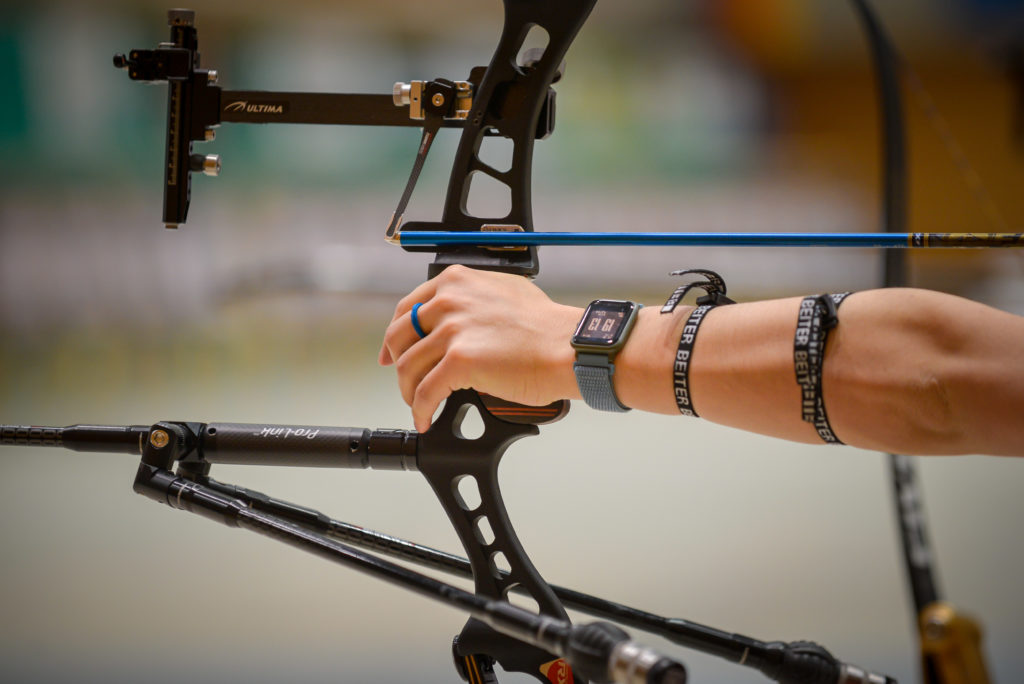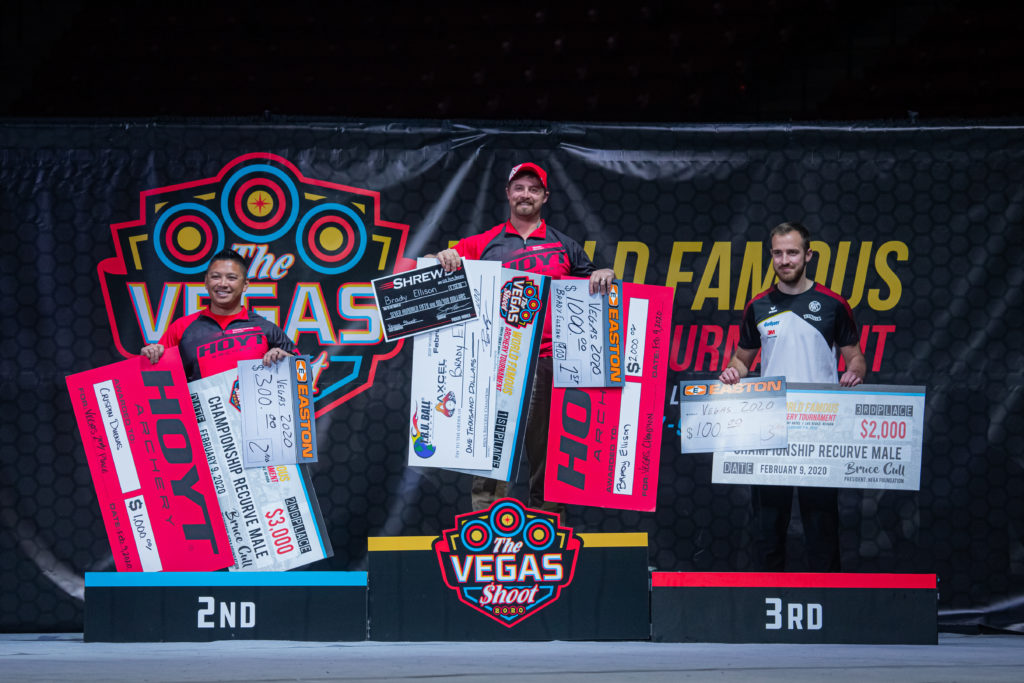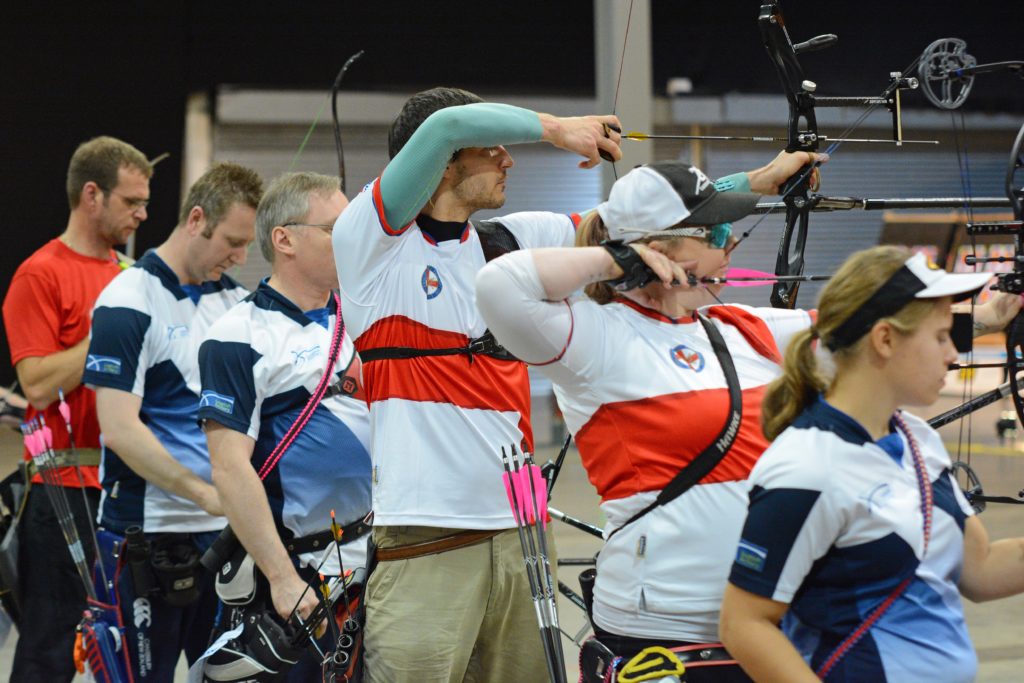Is sponsorship really all it’s cracked up to be? Bow investigates
Being a sponsored archer, eh? If you follow the sport, it sometimes seems as if the hashtags will never end. Reading about your favourite archer’s achievements on social media might be followed by a long list of “I couldn’t have done it without…” and a long list of products, right down to their underwear. Maybe.
You might be thinking: it must be great to get all that free gear, just for shooting. While the costs of taking up archery compared to many other sports is sometimes overstated (especially with a thriving second-hand market), it is true that once you start moving up the ladder — competing nationally at the top level, chasing Master Bowman scores and higher, or trying to make an international side — gear expenses start increasing dramatically, especially as you often need two of everything.
Some archery equipment manufacturers list their sponsored ‘pros’ on their website. On the bottom rung, people get a discount on equipment. The next tier up get free gear. A handful may receive a stipend or assistance with tournament costs. Some at the highest level get some kind of salary, and a tiny handful of elite names can pull in a great deal of money for sponsorship. One of the best-known American recurve archers is thought to make around $200,000 a year from the various strands of their career.
Sponsorship is such a big part of high level archery (and many other fields) that some people promote manufacturers apropos of nothing, either in the hope that they will eventually sponsor them or just to look like they are part of the gang. New announcements are often made around big focal points of the year such as the Vegas Shoot, driving gossip and speculation about who now ‘belongs’ to who.
It goes without saying that some amount of shooting talent is essential to success; like any professional sport, pro archery is performance-based. You have to be well-known and also winning major tournaments to be supported by a manufacturer with anything other than free equipment, however. But if you are winning major tournaments, this may unlock bonus prize money from associated manufacturers.
To be a good brand ambassador you need to be able to promote, advertise and sell the products you’re using. This means something rather more than being able to copy and paste a list of archery brands into an Instagram post – although yes, you will also have to develop an extensive social media profile and learn how to network.
What it really means is engaging with people on a level that gets them inspired and excited, and it tends to suit more extroverted people with good social skills and empathetic personalities. As one archer said to us: “You will need to ‘do you’, every day.” If you can make professional looking videos (a skill well worth developing in the modern age) that can also add a lot of value.
The well-known UK manufacturer-retailer Merlin Archery has an excellent page written by Ben Jones on their website about getting sponsored (www.merlinarchery.co.uk/sponsorship). While it applies to Merlin’s own policies, it’s a pretty good guide to archery sponsorship in general.
As he says: “When an archer applies for sponsorship, a decision will be taken based on the commercial benefit to our company as a result of you joining the team… I look for people who can positively promote our brands and influence people. Sounds like you? Great! Then break it down on how you will do that. If you started by thinking that you would advertise us by wearing our shirt at competitions and posting nice pictures on social media, then that is unlikely to be enough. Everyone can do that! Think about what makes you different.”
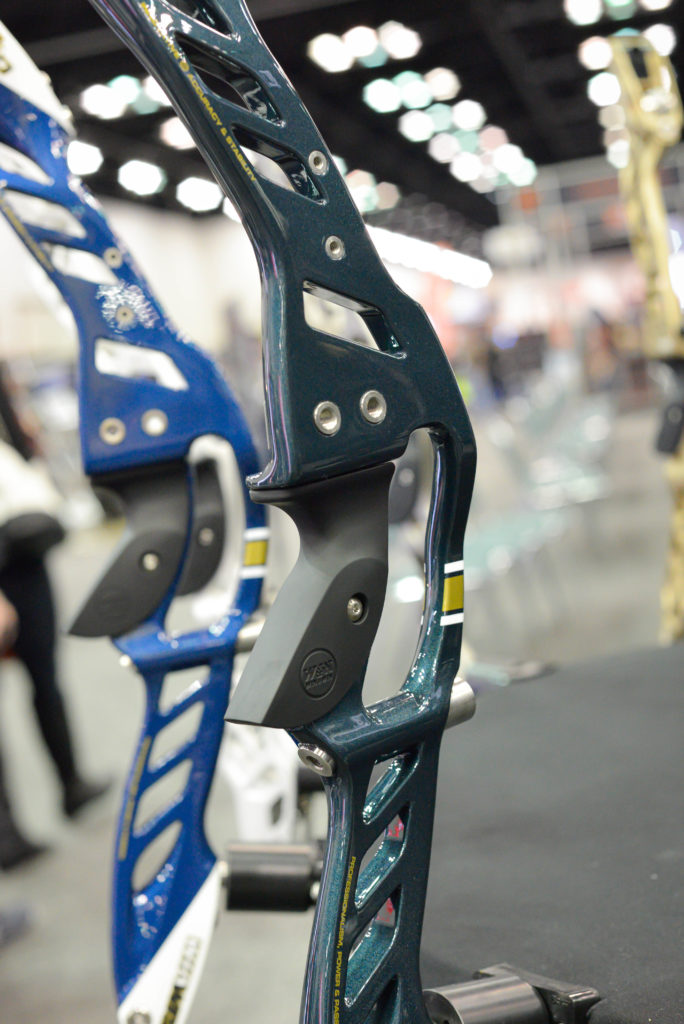
Apart from the big names, many bow companies are small operations (you’d be surprised how many companies in the archery world employ less than five people) and have very little budget to discount or donate gear.
Chris Hill is the long-time rep for Korean brand MK Archery in the USA, and has some choice words for archers seeking sponsorship. “For the company to give away or deeply discount the product, they must obviously receive something tangible back that generates revenue. So what does the bow company get for giving you a bow? Plenty of archers already shooting a company’s bow are already promoting it for free, having bought the bow. You promoting that bow is thus lost in a sea of others.”
“You don’t necessarily have to win to be sponsored. Many other factors are more important. Personally I never made a podium at a large tournament, and my scores were average by international standards. But I sold a load of bows for the company by shooting their gear at tournaments and promoting the brand for free. I let other archers at tournaments shoot my bow and limbs.”
“I ended up selling so many bows over a three-year period that the company made me a distributor. In fact, I was selling more bows than any other store or shop in the USA for that brand.”
“I get requests and resumes all the time from archers who won national this, international that. Usually they are so full of themselves, they say things like, ‘I will be happy to start promoting your product if you sponsor me’. This is not the way to think about sponsorship. You first have to prove to the company that you are an asset to the brand, and that you sell the bows you are promoting. People start to associate you with the brand, and the brand with you. You become a spokesperson who’s knowledgeable and accessible. You do those things, and sponsorship will come to you.”
It is also important to remember that sponsorship can be a burden. You will be signing a contract, and it may require more time commitment than it appears, especially if you have multiple sponsors. You will be becoming a professional (in at least one aspect of your archery career) and will be expected to behave in a professional and positive manner, at all times. Is that worth a few free strings?
Not all archers posting great results are able to make the leap, and not all understand exactly what it entails. The sponsored Croatian international Domagoj Buden doesn’t believe that you need to be the best to be successful in archery: “In my opinion it depends more on how much (product) you are able to sell than what you score at a shoot, because there are many guys out there who are shooting amazing, better than me, yet they’re not doing anything about selling the product so no one wants to sponsor them.”
An important, and little-considered fact is that the gear and the company has to fit you. It will simply not work if you are promoting a company you do not actually believe in, and may ultimately be a bad decision all around.
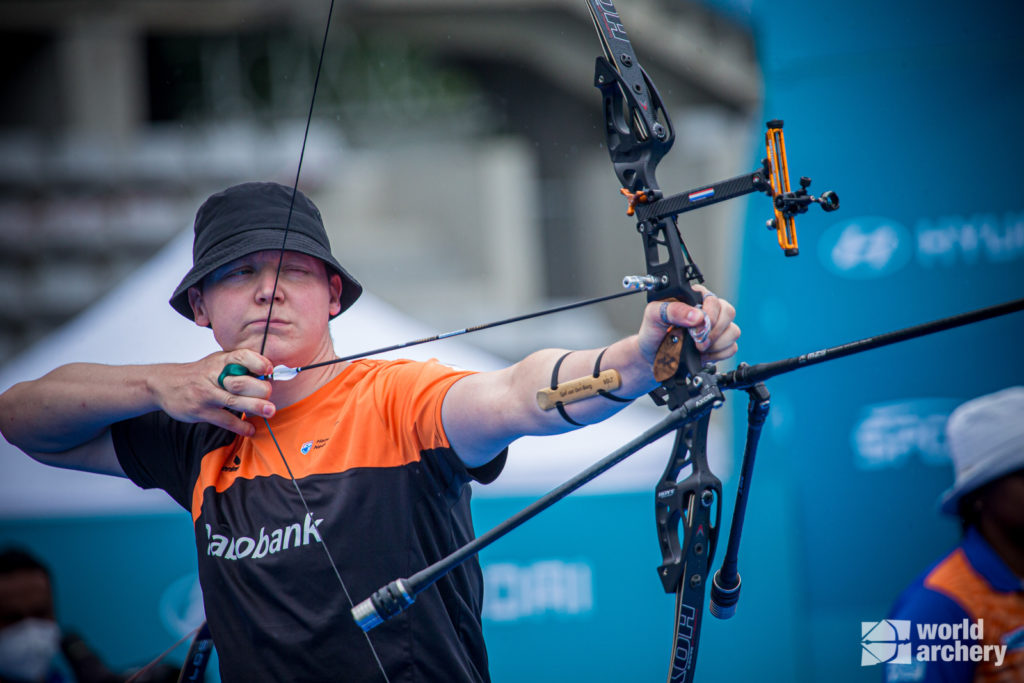
Sjef van den Berg, the Dutch international, has had many sponsorship contracts over his career, and said: “Although it is cool to get sponsored by a company, make sure their product but also values fit you. Don’t blindly go signing contracts without actually testing the product. There have been instances where I was offered a ‘better’ contract in terms of financial compensation or more product per year. I declined those if I felt like my results would suffer from it. Any product endorsement should come from an honest standpoint, and shouldn’t be a manufactured story about how good the product is, without adding depth or believing what you are saying yourself.”
“The bottom line is that you need to trust your gut feelings and shouldn’t go chasing the pot of gold if that means being dishonest or having a negative effect on your results.”
One thing all manufacturers genuinely do want is feedback on how their products are performing; it’s a vital part of the design process. Could you offer that? Are you at the level where you can understand and detail why something is good or bad in a logical (if not scientific) way? If you can — and some archers can do this a lot better than others — you are on the way to increasing your asset value to a manufacturer.
It’s clear that sponsorship on anything but the smallest level is very much not for everyone, and that an offer of something free will always come with strings attached. On the upside, it is an important step on the road for many archers, and boosts self-belief and confidence, tying people closer to the international sport. Many archers thrive under sponsorship. Could that be you? Maybe.
Making it happen: sponsorship
Do your homework
Beg, buy or borrow the gear you want to use and see if it is right for you. If you can tell a manufacturer exactly why you like their products, articulating all their strengths and weaknesses, they are more likely to take you seriously at least.
Find out what it will take to compete on your national team
Competing at large and sometimes exclusive international and professional tournaments can unlock exposure to potential sponsors you wouldn’t ordinarily have. If you can compete internationally, in any discipline, it hugely increases your value — especially if the event is televised.
Be patient
Many companies will not even respond to say no, because most don’t have full-time people to answer all the emails asking for sponsorship. They have to prioritise the ones asking for information on their products, or answering emails for orders and shipments. Give it time, and don’t be surprised if your email doesn’t get a reply.
Consider other skills
If you have the right skills you could try working for a manufacturer as a designer, a machinist or a marketing expert. You could play a key role in getting the latest piece of equipment into the shops and into people’s consciousness. Many archers end up working for manufacturers. What could you offer?
Don’t forget non-endemic sponsors
At club level, not much is going to happen with the big boys. But what clubs do have, far more than at the national or international level, is a small, captive audience. Your town’s local butchers are more likely to pay for Your Town’s Archery Club’s team shirts than Hoyt, because if those very shirts make it into the local paper then there will be some return, and plenty of community goodwill feeling to boot.


